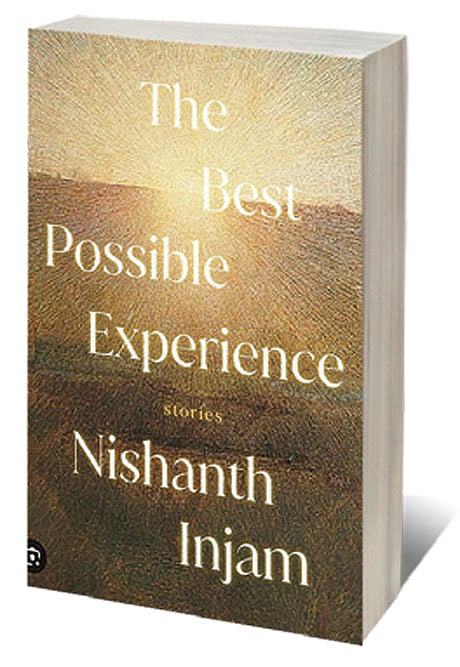Home Truths

IN THE TITLE story of Nishanth Injam’s debut collection, The Best Possible Experience: Stories, a widowed father in Goa teaches his son the art of giving people the “best possible experience”, as he terms it. From the time little Alex is a boy in school, his father, Mr Lourenco, takes Alex on rides in the tourist bus he drives: rides that show Alex what might be. Mr Lourenco’s stories, of Goa’s Portuguese heritage and of the Lourenco family’s own Portuguese heritage, are vibrant and interesting, and Mr Lourenco’s dreams for Alex are just as grand. Slowly, however, as the years go by, Alex begins to see the shabbiness beneath the glittering façade—and things unravel, the adventure stalls. But what remains is love: Alex’s love for the father who taught him to dream big.
Love, in fact, is one of the main themes of this collection of short stories. Some of it—in stories like ‘Sunday Evening with Ice Cream’, ‘The Sea’, and ‘The Protocol’—is about romantic love, but mostly, these are stories about love in its other forms: a love for home, a love for family, for memories, for people and things one has known. There is love, for instance, in ‘The Immigrant’, as Aditya flounders, starves and tries desperately to keep afloat in a foreign country, while following a taxing study schedule because he must provide for his poor, ailing parents back home, whom he loves so much. A love that is echoed in ‘Summers of Waiting’, a touching tale of a grandfather and his orphaned grand-daughter, whose relationship has seen many ups and downs—but has endured. There is the romantic love, perhaps unstated, of Chaya, in ‘Sunday Evening with Ice Cream’, who has sacrificed it for familial love, for the brother who needs her. In almost every one of the other stories, some aspect of love comes through, whether it is the ephemeral, uncertain, undefined emotion Gautham feels for Ashley in ‘The Protocol’, or the sibling love, tinged with guilt, that is so poignant in ‘The Bus’.
Openomics 2026: Continuity and Conviction
06 Feb 2026 - Vol 04 | Issue 57
The performance state at its peak
Intertwined with the idea of love is that of family. Family forms an important part of nearly all the stories in this set, and the sense of belonging that ‘family’ evokes is a theme that plays out again and again in these stories. Injam, however, manages to write with a subtlety and a depth of feeling that renders his stories devoid of melodrama, even when there is—as in the case of Rafi, mourning his dead wife in ‘The Sea’—drama. The families of these stories make sacrifices for each other, love each other: and yet, like families in real life, quarrel bitterly, take advantage of love, and hold grudges.
Injam’s stories are marked by an attention to detail, impeccable language, and excellent characterisation. A good bit of what makes these stories so relatable is the way he can bring his characters to life: these are people we might know, people we might be. Their thoughts, their fears, their challenges and dilemmas, are all what we, too, might know. To add to the sense of “these may be us”, there’s the language: fluid, mellifluous, very real, never succumbing to the temptation of being clever just for the sake of it. Injam’s language, especially his grasp over dialogue, is superb, and works to reinforce the ‘reality’ of his stories.
The 11 short stories that comprise The Best Possible Experience represent a fine debut. There is wit in several of these stories, but—as in real life—that wit is balanced with poignancy, with the very real fact that life must go on. A reader is reminded, in a subtle way, that life is not always a bed of roses: but to be able to laugh at it, and at ourselves, may be the wisest way to deal with the many challenges, the disappointments, and adversities we must face.

